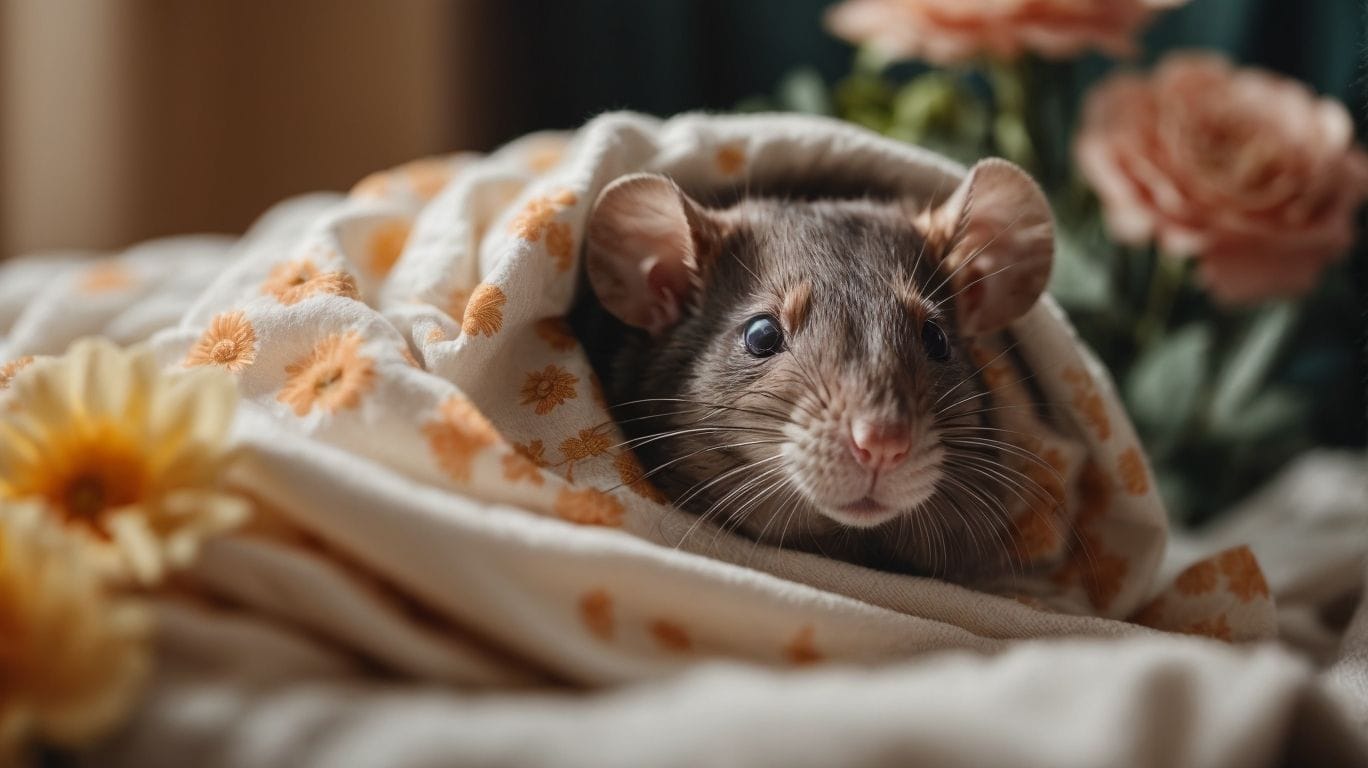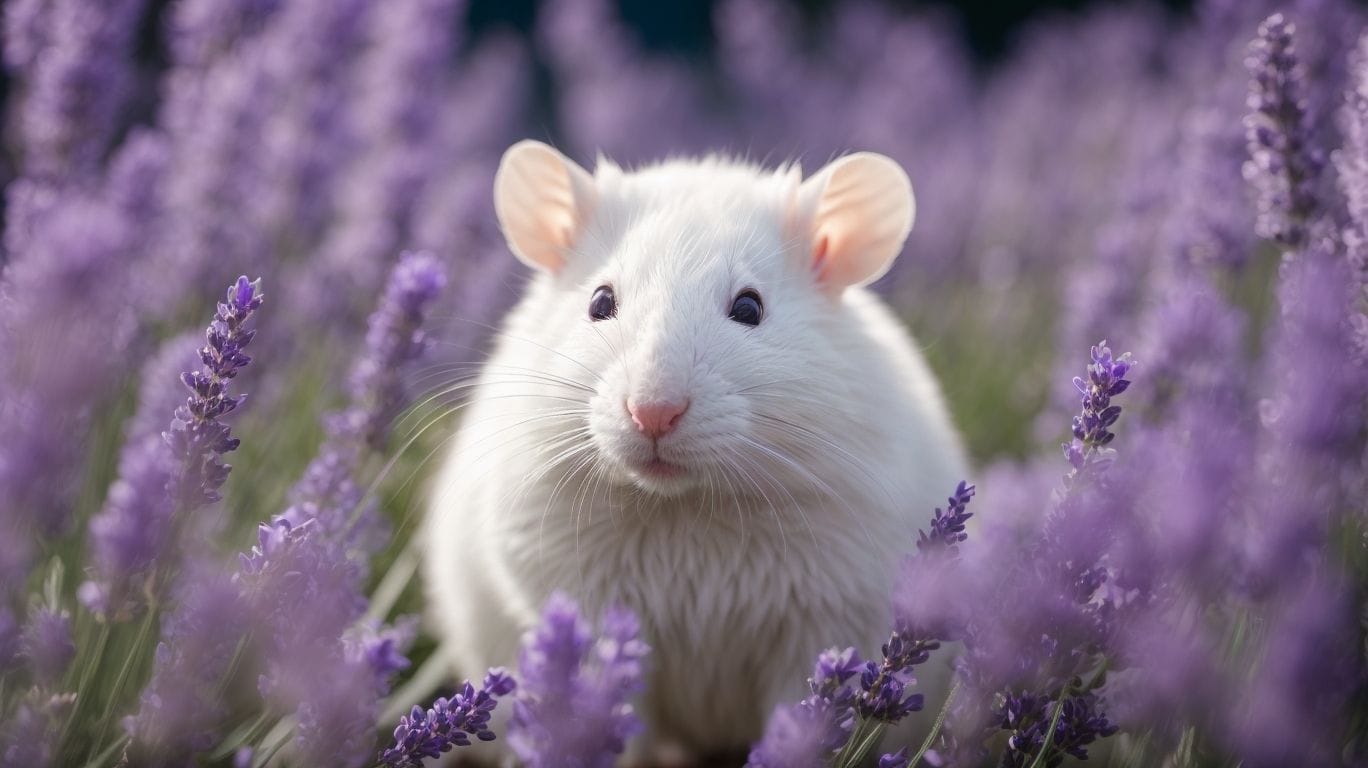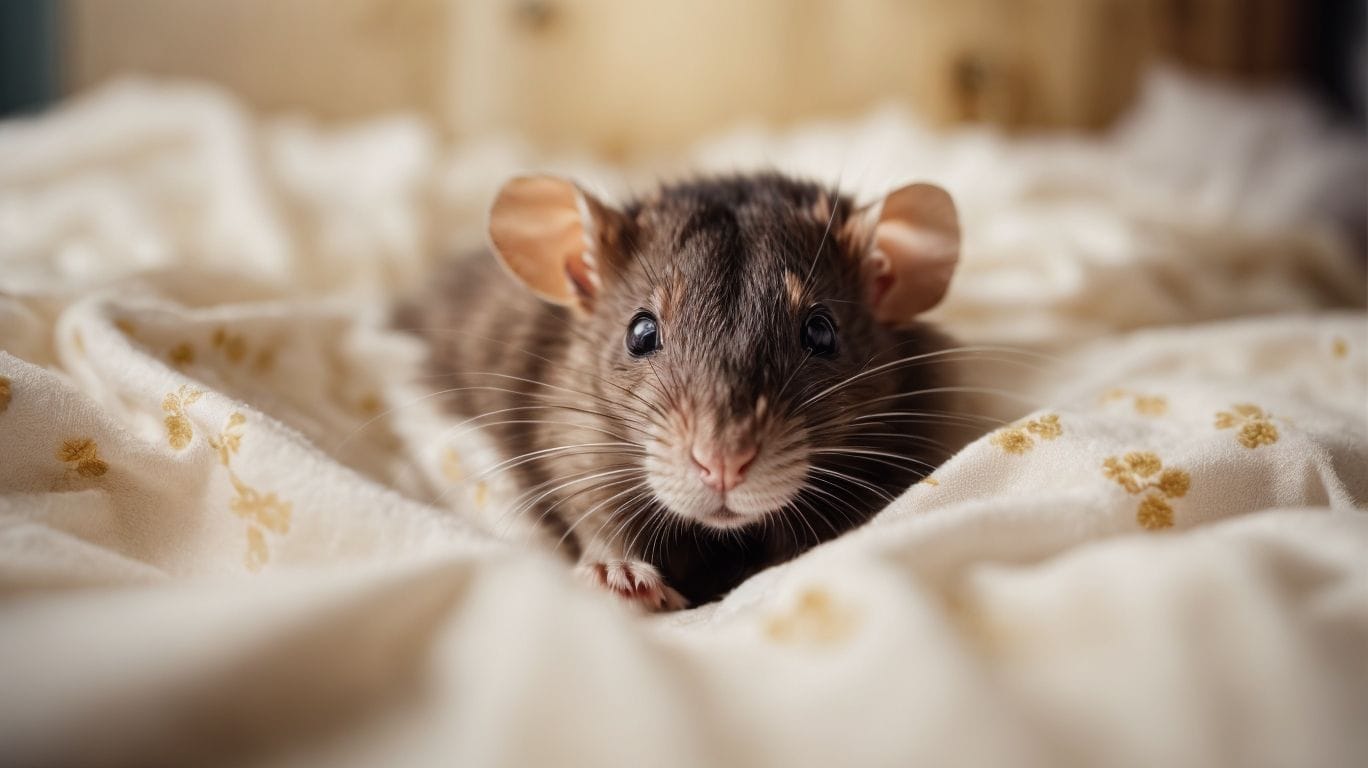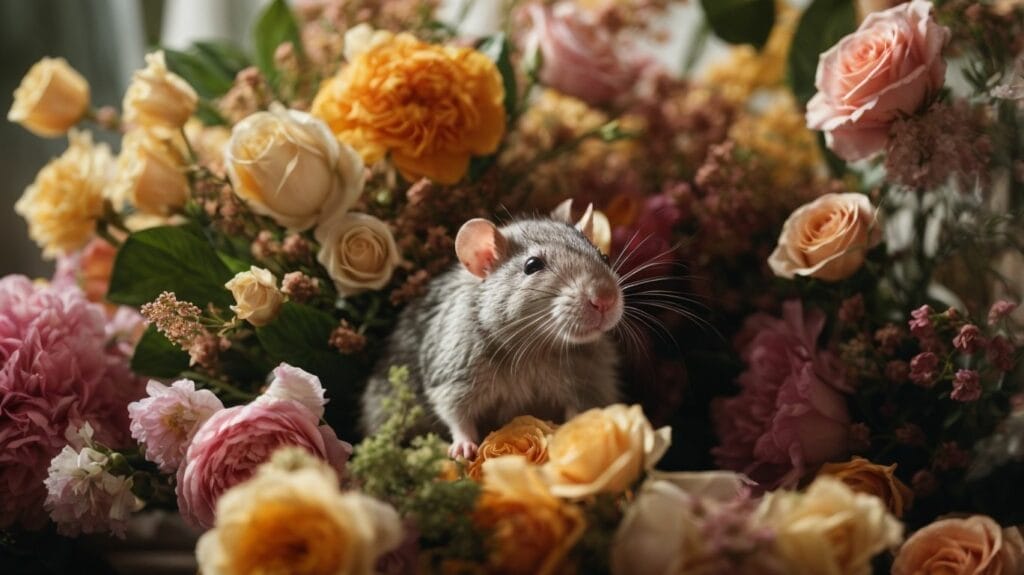Table of Contents
Add a header to begin generating the table of contents
When it comes to keeping rats as pets, one common concern that potential owners often have is the issue of odor. The question arises: Do pet rats smell? The answer is not as straightforward as it may seem. While rats do have a distinct scent, it is not inherently unpleasant or overpowering. The smell of a pet rat is influenced by various factors, including their diet, hygiene routine, and the cleanliness of their living environment. It is important to understand that with proper care and maintenance, you can minimize any potential odor associated with pet rats. By following certain measures, such as regular cage cleaning, appropriate bedding materials, proper nutrition, and regular bathing, you can ensure a pleasant and odor-free living environment for your pet rats. Let’s explore the factors affecting odor in pet rats and learn how to minimize any potential smells. we will debunk common misconceptions surrounding pet rat odor to provide a clearer understanding of this topic.

By addressing these factors through proper diet, hygiene, and appropriate bedding choices, the odor in pet rats can be minimized, creating a more pleasant living environment.


Key takeaway:
- Pet rats can have a noticeable odor: While not all pet rats smell strongly, some do have a distinct odor. Factors such as cleanliness, bedding materials, diet, and grooming can affect the smell of pet rats.
- Proper cage cleaning and maintenance are essential: Regular cleaning of the rat’s cage and accessories helps minimize odor. Removing waste, changing bedding, and ensuring good ventilation are key in controlling smell.
- Diet and nutrition play a role in pet rat odor: Feeding a balanced diet and avoiding certain pungent foods can help reduce the smell of pet rats. Fresh fruits and vegetables, along with high-quality rat food, can contribute to a less noticeable odor.
Do Pet Rats Smell?

Photo Credits: Petnarnia.Com by Patrick Wilson
Curious about whether pet rats emit odors? Let’s dive into the topic of pet rat smells, exploring the factors that can influence their odor. Discover what makes these adorable critters sometimes smelly companions, and gain insights into how to manage and minimize any potential odors in your furry friend’s habitat. Get ready to debunk myths, learn expert tips, and gain a better understanding of the fascinating world of pet rat aromas.Factors Affecting Odor in Pet Rats
Various factors can contribute to the odor in pet rats, so understanding these factors is important for maintaining a fresh environment. Here are some key factors that affect the odor in pet rats:| Factor | Effect on Odor |
|---|---|
| Diet | Certain foods, such as fish-based diets, can increase the strength of the odor in rat droppings and urine. |
| Hygiene | Neglecting cage cleaning and maintenance can lead to a buildup of waste, contributing to a strong smell. |
| Bedding Materials | Some bedding materials, like wood shavings, can absorb and retain odors more than others. |
| Overall Health | Poor health or underlying medical conditions can result in increased odor. |
How to Minimize Odor in Pet Rats

Photo Credits: Petnarnia.Com by Aaron Taylor
Looking to keep your pet rat smelling fresh and clean? Dive into the world of minimizing odor in pet rats with this section! From proper cage cleaning and maintenance to choosing the right bedding materials, we’ve got you covered. Discover the impact of diet and nutrition on odor control, and learn the importance of regular bathing and grooming for your furry friend. Say goodbye to unpleasant smells and hello to a more enjoyable rat-owning experience!Proper Cage Cleaning and Maintenance
- Proper cage cleaning and maintenance is crucial to minimize odor in pet rats. Follow these steps:
- Make sure to remove soiled bedding and waste on a daily basis.
- Thoroughly clean the cage every 1-2 weeks using mild soap and water.
- To eliminate any residue, rinse the cage well.
- Before adding fresh bedding and reintroducing the rats, ensure that the cage is completely dry.
- Regularly clean and disinfect toys, as well as food and water bowls.
Choosing Bedding Materials
Choosing suitable bedding materials for your pet rats is crucial when considering factors such as absorbency, odor control, and safety. Here are a few options to keep in mind: 1. Opt for paper-based bedding: This type of bedding is renowned for its excellent absorbency and ability to control odors. It’s made from recycled paper, making it both eco-friendly and safe for your rats. 2. Consider aspen bedding: Aspen shavings are another popular choice due to their absorbent nature and odor-controlling properties. However, avoid cedar and pine shavings as they can be harmful to your rats’ respiratory systems. 3. Explore fleece liners: These washable and reusable liners provide a soft and comfortable surface for your rats. They are cost-effective in the long run and incredibly easy to clean. 4. Embrace hemp bedding: Made from the fibers of the hemp plant, this bedding is absorbent and possesses natural odor-controlling qualities. It’s a safe and eco-friendly choice for your beloved pet rats. Remember, irrespective of the bedding material you select, it’s essential to regularly clean and change it to maintain a clean and odor-free environment for your adorable pet rats. In ancient Egypt, pet rats held a significant status and were even worshipped. People kept them in their homes as pets, believing that they brought good luck and prosperity. These highly regarded creatures were provided with special cages filled with soft materials like straw and cotton to ensure their comfort. This historical evidence showcases that even in ancient times, the careful selection of suitable bedding materials for pet rats was of paramount importance.Diet and Nutrition
A proper diet and nutrition are crucial for maintaining a healthy and odor-free environment for pet rats. Incorporating diet and nutrition in their daily care can help minimize odor. It is important to provide them with a well-balanced mixture of high-quality pellets, fresh fruits and vegetables, and occasional protein sources. Including fiber-rich foods like hay in their diet can improve digestion and reduce gastrointestinal issues that may contribute to odor. Avoiding sugary and fatty treats is essential to prevent weight gain and associated odors. Additionally, it is important to ensure fresh water is always available to keep rats hydrated and support their overall health. By focusing on diet and nutrition, it is possible to create a pleasant and odor-free living space for pet rats.Regular Bathing and Grooming
Regular bathing and grooming are crucial for maintaining a pleasant odor in pet rats. It is important to follow these essential tips:- Bathing: Ensure to use lukewarm water and a gentle pet shampoo. Avoid getting water in their ears, eyes, or nose. Thoroughly rinse and dry them with a soft towel.
- Grooming: It is advisable to regularly brush their fur to remove loose hair and prevent matting. Trim their nails carefully using pet nail clippers, making sure not to cut too close to the quick.
- Ear cleaning: To gently wipe away any dirt or wax, use a cotton ball dampened with a pet-safe ear cleaner.
- Scent glands: Male rats have scent glands that may produce a musky smell. To reduce odor, gently wipe their scent glands with a damp cloth.
Common Misconceptions about Pet Rat Odor

Photo Credits: Petnarnia.Com by Steven Green
Did you know that there are several common misconceptions about pet rat odor? Let’s dive into these myths and separate fact from fiction. We’ll explore whether all rats have a strong odor, if male rats really smell more than females, and whether removing scent glands truly eliminates any traces of odor. Get ready to uncover the truth about pet rat smells and put those misconceptions to rest!Myth: All Rats Have a Strong Odor
It is a common misconception that all pet rats have a strong odor. This is not true. While it is true that rats can produce an odor, it is usually not overpowering or unpleasant. The perception of smell can vary depending on factors such as the rat’s diet, cleanliness of their living environment, and individual rat differences. By maintaining a clean cage, using odor-absorbing bedding materials, providing a balanced diet, and regularly bathing and grooming your pet rat, you can effectively minimize any potential odor. Remember, not all rats have a strong odor, so don’t let this myth discourage you from considering them as pets. Pro-tip: Regularly cleaning and providing proper care for your pet rat can greatly reduce any potential odor.Myth: Male Rats Smell More than Females
Male rats do not smell more than female rats, debunking the myth that male rats have a stronger odor. The idea that male rats have a stronger smell is a common misconception. Both male and female rats have the potential to produce scent glands, which can contribute to an odor. The smell is not inherently stronger in males. Proper cage cleaning and maintenance, along with a balanced diet and regular grooming, can help minimize any odor associated with pet rats. It’s crucial to provide a clean and healthy environment for all pet rats, regardless of their gender. In ancient Egypt, rats held a significant position and were even worshipped. They were closely associated with the goddess Bastet and revered as sacred animals. Rats were frequently kept as pets and were believed to bring good luck and prosperity to households. The Egyptians attributed strong psychic abilities to rats, believing they could predict events. These animals were treated with utmost care and respect, highlighting the positive aspects of having rats as pets.Myth: Removing Scent Glands Eliminates Odor
While it is commonly believed that removing scent glands eliminates odor in pet rats, this is actually a myth. Scent glands, located on the rat’s belly, produce an oily substance called sebum, which helps them mark their territory. Removing these glands may reduce the intensity of the odor, but it will not eliminate it completely. The odor in pet rats is primarily caused by their urine, feces, and natural body oils. To minimize odor, proper cage cleaning, choosing suitable bedding materials, providing a balanced diet, and regular bathing and grooming are more effective solutions. So, instead of removing scent glands, focus on maintaining a clean and hygienic environment for your pet rats.Some Facts About Do Pet Rats Smell?
- ✅ Rats are clean animals and spend hours grooming themselves and each other. (Source: Our Team)
- ✅ They do not have a strong natural scent, but may have a gentle, slightly musty fur smell up close. (Source: Our Team)
- ✅ When rats are territorial, they may have a faintly chemical scent from scent marking. (Source: Our Team)
- ✅ Rats’ urine and feces can make the cage smell, so regular spot cleaning is necessary to prevent a build-up of ammonia. (Source: Our Team)
- ✅ Litter training rats can make spot cleaning easier and help reduce odors. (Source: Our Team)


